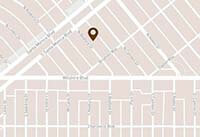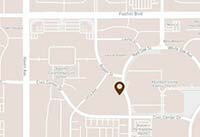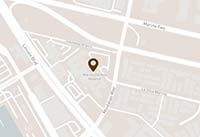
Gastric sleeve pain after eating is a common complaint among individuals who have undergone lap band or Orbera gastric sleeve surgery. Lap band and Orbera are both minimally invasive procedures designed to reduce the size of the stomach in order to reduce food intake and promote weight loss. Unfortunately, these bariatric surgeries can cause uncomfortable side effects such as nausea, vomiting, and abdominal pain.
If you’re experiencing gastric sleeve pain after eating, it’s important to understand that this is a normal part of your recovery process. The best way to manage these symptoms is to eat small meals throughout the day rather than large ones. Eating more frequent but smaller portions helps aid digestion and reduces the risk of overloading your stomach with too much food at once. Additionally, chewing your food slowly and thoroughly can also help digestion by breaking down foods into smaller particles for easier absorption in the intestines.
It’s also important to drink plenty of fluids throughout the day as dehydration can make gastric sleeve pain worse. Avoiding carbonated beverages, caffeine, alcohol, or anything else that could irritate the stomach lining should also be avoided when possible. If you experience an increase in gas or bloating, try adding probiotics or digestive enzymes to your diet to aid with digestion and nutrient absorption. Finally, be sure to speak with your doctor if you continue to experience severe gastric sleeve pain after eating as they may suggest prescription medications or other treatments to reduce discomfort and speed up recovery time.
If you live in the Los Angeles area and are looking for a bariatric surgery surgeon, many highly qualified professionals can be found that specialize in lap band or Orbera gastric sleeve surgery. Lap band surgery is a procedure specifically designed to reduce food intake by restricting the size of the stomach with an adjustable silicone band. Orbera gastric sleeve surgery is a less invasive procedure than lap band and involves removing part of the stomach to reduce its capacity. Both procedures can be highly effective for weight loss, but it’s important to understand the risks and side effects involved before making any decisions about surgery. Lap band and Orbera side effects can include nausea, vomiting, abdominal pain, and bloating.
If you’re considering lap band or Orbera gastric sleeve surgery as a weight loss solution in Los Angeles, it is important to consult with your doctor about the possible risks and side effects associated with either procedure. It is also important to find an experienced surgeon who is qualified to perform lap band or Orbera gastric sleeve surgery in California. An experienced surgeon can help ensure a successful procedure and reduce the risk of any complications arising from the surgery.
Remember to always research any medical procedure before making a decision, and make sure you bear in mind that side effects may occur after lap band or Orbera gastric sleeve surgery. Gastric sleeve pain after eating is a normal part of the recovery process, but with proper care and attention you should be able to make a full recovery in no time at all.
Each person’s individual medical needs and health condition should be discussed with a qualified healthcare professional before making any decisions regarding surgery. If you have questions or concerns about lap band or Orbera gastric sleeve surgery in Los Angeles, please contact your doctor or healthcare provider as soon as possible. They can help you make an informed decision and discuss the potential risks and side effects of either procedure.





